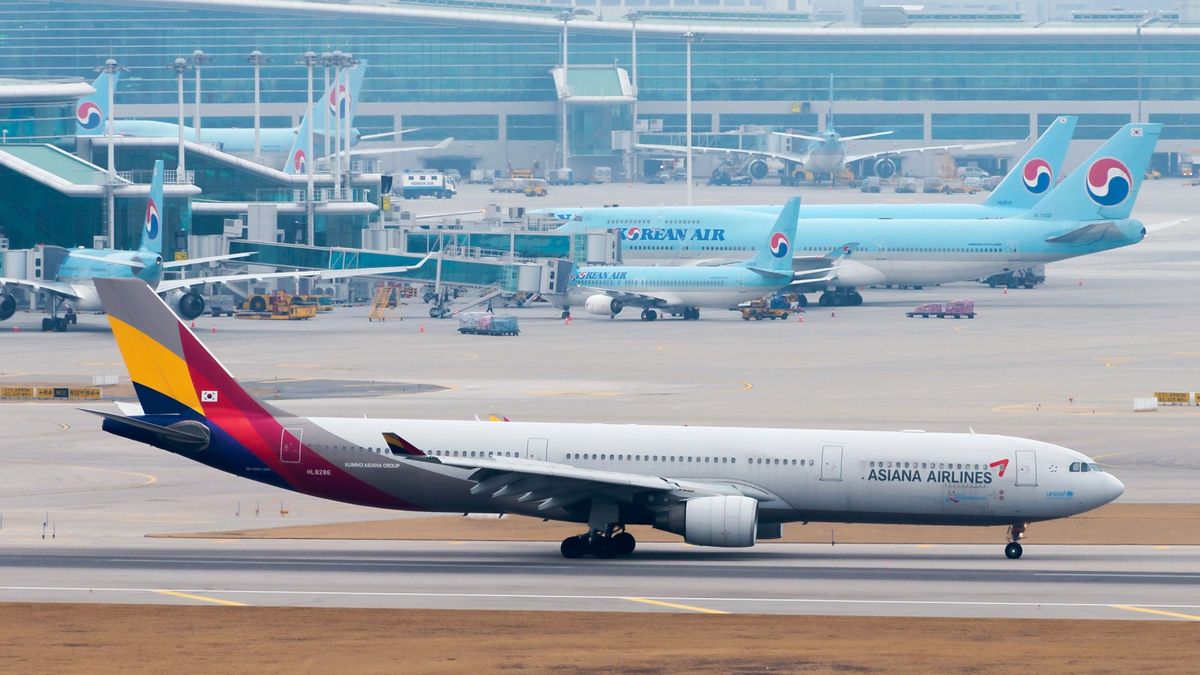Korean Airlines has completed its acquisition of Asiana, South Korea’s second-largest carrier.
The $1.3 billion deal, which gives Korean a 64% stake in Asiana, came four years after the airlines reached a merger agreement during the thick of the Covid-19 pandemic.
The merger makes Korean Air the 11th largest airline in the world in terms of international weekly seats, up from 22nd, according to a CAPA Centre of Aviation analysis. Asiana had been 40th on the list.
The merger also gives the Korean Air Group a 47% share of the South Korea international market, as measured by seats for the week of Dec. 2 — a total that includes Korean and Asiana as well as Korean low-cost brand Jin Air and Asiana low-cost carriers Air Busan and Air Seoul.
As part of the merger, Air Busan and Air Seoul will be subsumed by Jin Air. The Asiana brand will continue to fly while Korean Air works toward completing the integration of the two airlines within two years.
Korean’s closing of the transaction came two weeks after the European Commission approved the deal. Competition authorities in Japan, China and several other key countries had previously approved the tie-up. The U.S. Department of Justice has not yet weighed in, though Korean’s decision to finalize the purchase indicated that sign-off is expected.
As part of the approval process, competition authorities extracted various concessions from Korean, including its leasing of four Boeing 787s to relative newcomer Air Premia to bolster competition between South Korea and the U.S.
Korean is serving 11 U.S. destinations this month, Cirium flight schedule data shows, and Asiana is serving five — all from Seoul.
Air Premia is flying from Seoul to Newark, San Francisco and Los Angeles.







